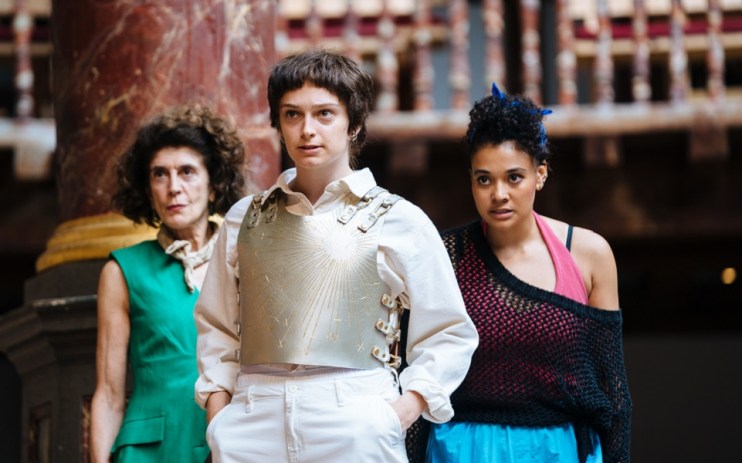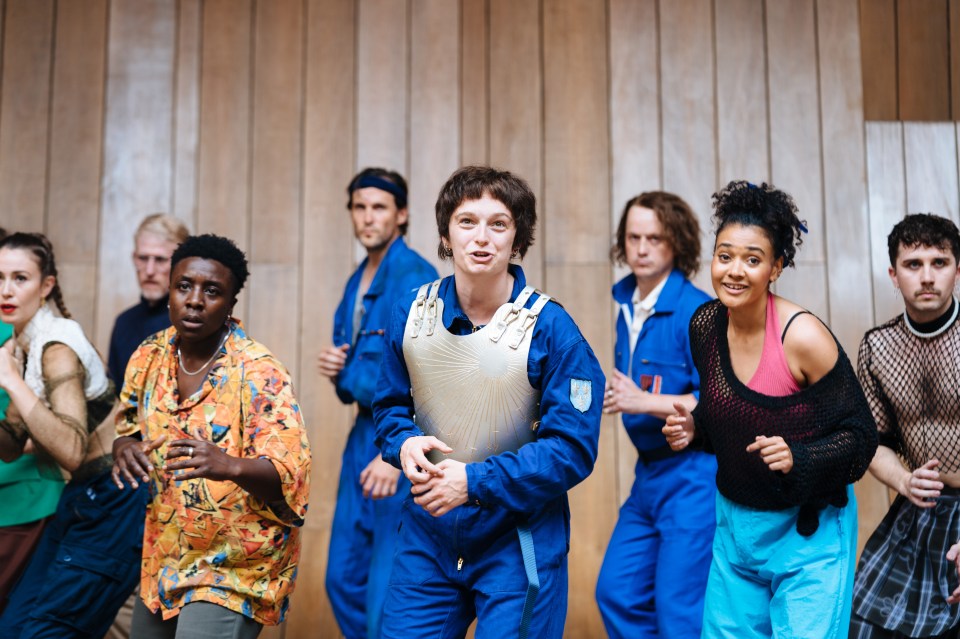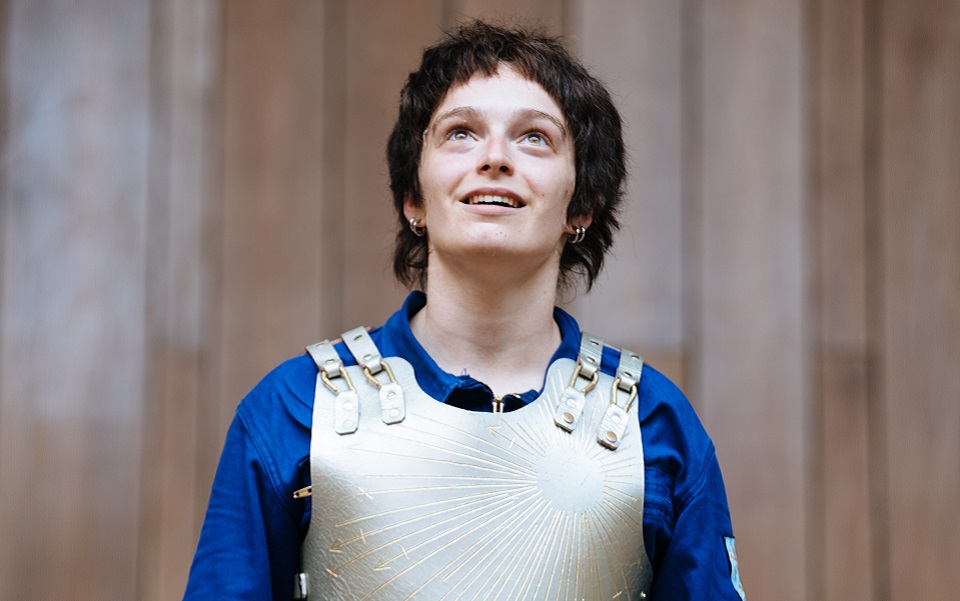I, Joan, The Globe, review: Trans lead makes London theatre history with gripping performance

Gay men had it in the 1980s and 1990s when two landmark plays, Angels In America and The Normal Heart, humanised the tragedies of the AIDS crisis on major theatre stages.
And now I, Joan, a new adaptation of the story of Joan of Arc, feels similarly like a crucial and history-making piece of theatre for transgender and non-binary people. This is the first major London theatre production where a trans person is centre stage, in a main role.
It could have gone so wrong. A first-time actor in their first major London theatre job, twisting one of history’s great heroines to fit them in a modern predicament. It could have felt performative, but instead I, Joan is a gripping and at times funny retelling of a story that – let’s face it – we all needed a refresher course on anyway.

This production gets so many things right it’s difficult to know where to begin. There’s The Globe’s stage, shaped like the inside curve of an actual arc, inviting the cast to slide from the top to the bottom on slippery wood whenever the script offers them the chance for light relief, or a character study moment. It’s fourth-wall breaking silliness that’s oh-so Globe.
Time is used as an effective symbol of privilege. We must attack tonight, Joan insists, but it falls on deaf ears
Then there is Charlie Josephine’s engaging script, which fills every inch of I, Joan’s nearly three-hour run-time. Non-binary newcomer Isobel Thom, who’s immensely likeable, is a fizzing pot of energy and anger in the titular role. They’re reprimanded by the king and French officials for wearing men’s clothing and for treason even though they helped the French win a key part of the Thousand Years War. At one point Joan soberly says: “Not all of us can have the luxury of a revolution.”
Similarly to the 15th century event, Joan feels that God has chosen them to help lead the French army to victory over the British. Jolyon Coy’s King Charles is a pathetic, boyish leader who prances around in his underpants. Coy drops his shoulders and whinges when things don’t go his way, and is brilliant comic relief. With him and his leading men, time is used as an effective symbol of privilege. We must attack tonight, Joan insists, but it falls on deaf ears of the lazy army that would rather put the attack off than get the job done.

Josephine and Thom do not try to academicise but instead have made a Joan of Arc that is relatable for everyone, and there’s been a clear push to bring in teenagers to the audience with a simple and effective plot.
Choreographer Jennifer Jackson has teamed up with director Illinca Radulian to contrive ways to expose the frailty of men and oppressive system of patriarchal rule, and they always do it by having a good laugh.
It’s all threaded with brilliantly absurd physical comedy. A group of dour religious men steal the show during Joan’s hearing, when they (until Joan informs those around them that their pronouns are ‘they/them,’ they are referred to as ‘she’) are told they must admit to committing treason by acting on their own free will rather than in line with God. “I can neither admit nor repent what is not true!” a forthright Joan remarks. Every time they say something brave, it forces the men to perform a hilariously strange abstract dance around the stage to off-key percussive music. Script notes describe the movement as “like angry pigeons.” Choreographer Jennifer Jackson has teamed up with director Illinca Radulian to contrive ways to expose the frailty of men and oppressive system of patriarchal rule, and they always do it by having a good laugh.
By putting a trans person in a leading role in a major production, The Globe has made history this September. It’s emotional. Let’s not understate this achievement.
There’s a wonderful ally too, in the role of Thomas, touchingly played by Adam Gillen, who tells Joan he feels more like her than the men. “She formed you an army!” he screams at Charles as Joan is about to be burned for treason. “What have you ever fucking done?”
Toward the end of Act 2 Joan takes to the middle of the in-the-round audience and declares a non-binary manifesto that will divide some theatre purists from those non-binary and trans people here to feel seen. It felt too on-the-nose, and was unnecessary given the whole play had been so nuanced in getting across effective messages about transness without requiring a big State of the Nation ending. Nevertheless, hundreds of people had paid to be here to hear that exact speech.
Opening nights, when the media and friends and family are invited, often get standing ovations, even if the shows aren’t any good. But the long and sustained applause at the end of I, Joan felt like something else. By the curtain, Thom’s applause had rung on so long that it looked like their third and final bow was spontaneous. Waving their hand in a playful way at the hoardes of non-binary and trans people as if to ask them to stop cheering, it was an emotional sight. (Less so the horrible irony of the gendered male and female toilets during the interval, when the women, trans and non-binary people who are always made to queue longer due to shortages of cubicles looked even more aggravated than usual, and rightly so.)
By putting a trans person in a leading role in a major production, The Globe has made history this September. It’s emotional, and let’s not understate this achievement. The hundreds of trans folk hugging one another on the South Bank at 10.30pm last night certainly won’t.
I, Joan plays at The Globe until 22 October
